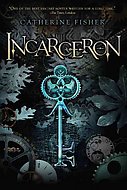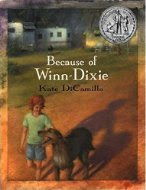[Book cover credit: librarything.com/work/6159635]
If you haven't yet read Incarceron, what are you waiting for? ;) Also, don't read this. It will spoil it for you.
Booktalk:
The Warden's final little stunt destroyed the portal to Incarceron, trapping not only himself but also Keiro and Attia in its depths. As much as Finn would like every waking moment to be spent working on their release, there are bigger things for he, Jared, and Claudia to worry about. Finn's lack of courtly manners and, you know, memory of his life as Prince Giles is really starting to work against them. And when a young man who is indistinguishable from Finn physically but clearly bred to eat from a silver spoon comes to court claiming to be the long-lost Giles, it could be death of them all, in Incarceron or Out.
Review:
It took more self-control than I knew I had not to tear into this book as soon as I got it. I wanted to reread the first book so I could pick up all the little things that I was sure would pop up again in this sequel. I suggest you all do the same. Fisher writes a very intricate story, and it definitely builds on little clues left behind in the first book. Still, I don't think Sapphique quite lived up to its prequel. Or maybe it just didn't live up to all the hype I'd built up for it in my head. I loved the way I was plopped into the middle of all the characters lives again rather than having the book pick up right where the previous one left off. I really liked that there were so many little clues in the text to lead the reader to what is Really Going On Here. I loved that this book, the end of the Incarceron series (pairing?), was still full of twists right up to the very end. I still loved most of the characters (though not necessarily the same ones I loved in the last book, a fact I also loved). But there was just something missing. I didn't stay up until 4 in the morning to finish Sapphique. I took a leisurely week to read it.
Though the narration still switches between life in the Realm and life in Incarceron, a lot of Sapphique follows Claudia, Finn and Jared in the Realm. Which is what I wanted! I know! But life at court rather than at the Wardenry or with the peasants is pretty boring. And Claudia and Finn both annoyed me. A lot. They're both beyond frustrated at Finn's lack of memory and this frustration manifests itself as doubt on Claudia's part and severe moodiness on Finn's. Neither were the strong and/or sure of themselves leaders that we met in Incarceron. The change in them was totally believable; I just didn't love them as much as I used to.
BUT with all the focus on life Outside, Sapphique does treat us to more insight into living life by Protocol, including a short trip to a peasant village:
She [Claudia] shivered. "You should glass the windows. The draft is terrible."Throughout the book Claudia is served revelations such as this. It also becomes obvious that though she is kind and more educated than she should be considering Protocol in general and her gender class in it, she has no idea how to interact with people outside of the roles of master and servant, and everyone who is not her master is her potential servant. If Finn gained anything from living in Incarceron (besides his BFF Keiro), it's that he knows what it is to go without, to live a meager existence, to just try to survive. Even as Claudia doubts more and more whether Finn is actually Giles, it becomes clear (to me, not necessarily to the characters) that Finn will be a wonderful king if/when they get rid of the witchy Queen.
The old man laughed, pouring out thin ale. "But that wouldn't be Protocol, would it? And we must abide by the Protocol, even as it kills us."
"There are ways around it," Finn said softly.
"Not for us." He pushed the pottery cups toward them. "For the Queen maybe, because them that make the rules can break them, but not for the poor. Era is no pretense for us, no playing at the past with all its edges softened. It's real. We have no skinwands, lad, none of the precious electricity or plastiglas. The picturesque squalor the Queen likes to ride past is where we live. You play at history. We endure it."
p.199*
Speaking of the witchy Queen, one of the characters that I loved the most was her son Casper. I know, he's horrible in Incarceron and he comes nowhere near making the switch to "good guy" in Sapphique, but I still loved him. He seemed so lost a lot of the time. You can tell that he really grew up living in the dual shadows of his Queenly mother and Princely half-brother. When Giles comes back, whether anyone believes Finn is the real Giles or not, Casper is left being the younger prince again. The spare. I felt so bad for him, still hanging around Claudia throughout this book even though it's always been clear she has no interest in him. He kept trying to win her back with promises of power and safety, things Finn/Giles couldn't offer her, but rather than coming off as evil and manipulative, he seemed like an unpopular rich kid who buys everyone in his class presents so they'll come to his birthday party.
And then there's Keiro and Attia still in Incarceron following yet another legend of Sapphique, looking for a way out. I liked their storyline a lot, but there was little to no character development in it. It was like Fisher knew she needed danger and action to keep readers interested in between all the palace intrigue in the Realm, so she foisted it all on the two of them. But it's the two of them who manage to pull everything together in the end (I'm being generous because I LOVE Keiro; Attia's the real smartypants in this volume).
Sapphique is a must-read if you are a lover of Incarceron. It's not the thrill ride that the first book was, but questions are answered, loose ends are tied up, and maybe, just maybe, things are allowed to change.
Sapphique will be out in hardback on the 28th!
You know, before you blow all your hard-earned Christmas money. ;)
Also, I would be a bad blogger if I didn't point out that last week Taylor Lautner (yes, that Taylor Lautner) was announced as The Guy Who Will Play Finn in the movie adaptation. I just hope Hollywood wises up and listens to the FYA ladies when casting the Warden.
Book source: ARC picked up at ALA
*Quotes and page numbers are from an uncorrected proof and may not match the published copy.






